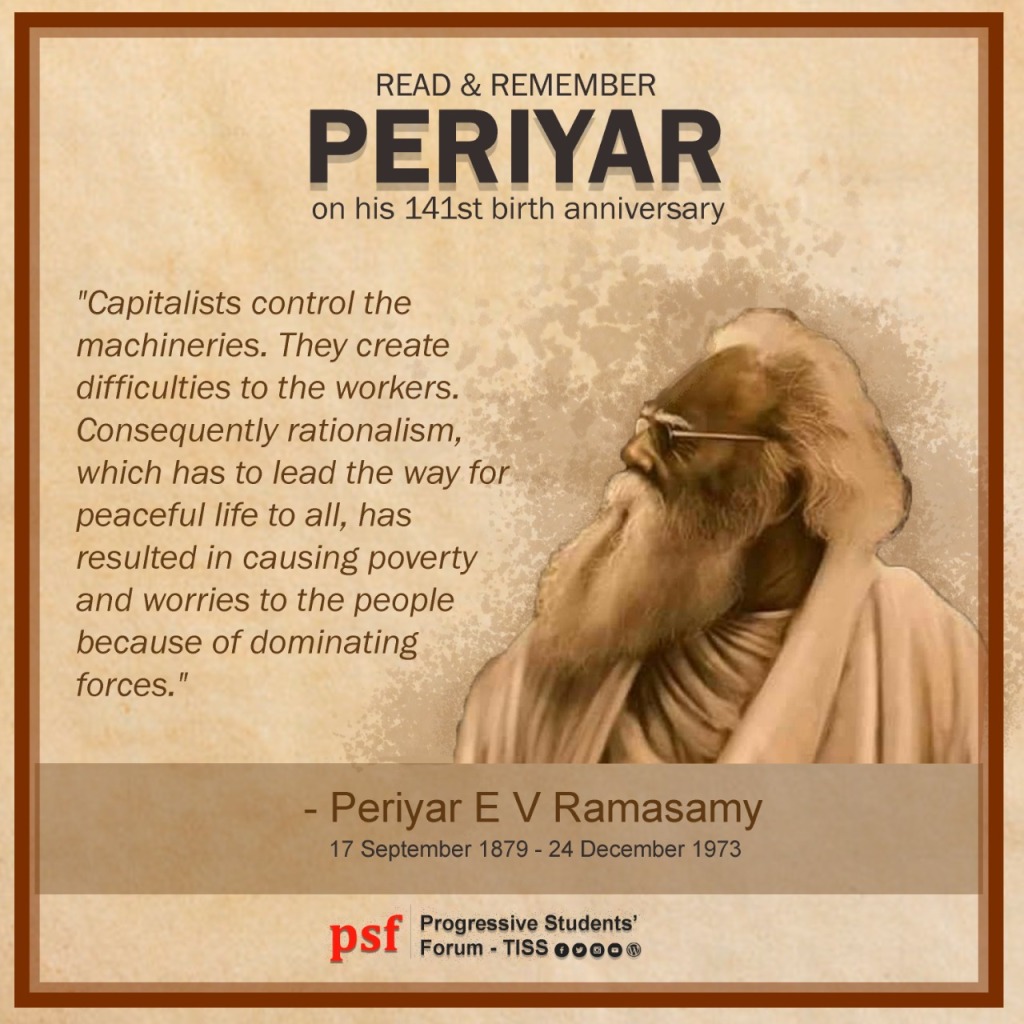Born on 17th September, EV Ramaswamy Naicker (1879-1973), popularly known as Periyar was a militant social reformer in Tamil Nadu who struggled against casteism, patriarchy and capitalism. Periyar played a revolutionary role in fostering the Dravidian movement in South India that confronted social inequalities by fighting for justice. He is revered as Thanthai Periyar, the father of modern Tamil Nadu.
Periyar started his political life in 1919 with the Congress party by participating in the nationalist movement for independence. His involvment in the temple entry movement for avarnas in the Vaikom Satyagraha and his differences with Gandhi made him a popular leader and earned him the title Vaikom Veeran (Vaikom Hero). Periyar quit the Congress in 1925 because of their conservative stance on the caste system.

He joined the Justice Party and led the Self Respect Movement, through which he aimed to banish the notion of superior and inferior castes in society by reinvigorating a Dravidian identity. The philosophy of self-respect, which marked a pivotal turn in Periyar’s politics, was thus intertwined with the struggle for radical egalitarianism. The Justice Party fought against Brahmin dominance, especially in the bureaucracy. In 1944, Periyar launched the Dravida Kazhagam with a grander vision of Dravida Nadu to resist the hegemony of Indo-Aryan culture.
Periyar was a fierce rationalist and believed in political education to “liberate the intellect”. He challenged patriarchal conceptions of womanhood by campaigning for gender equality, questioning the orthodoxy of marriage system and advocating for women’s right to property. His foreign trips, especially to the Soviet Union, made him aware about the possibilities of socialism. Periyar subsequently campaigned for freedom from British as well other forms of capitalist governments and to replace it with a system of public ownership by a federation of workers and peasants.
Periyar’s politics espouses a radical alternative to the conservative politics led by the right-wing today. Violence against the marginalised continues unabated amidst attempts to erase diversity in the name of unity. Periyar’s revolt against such totalitarian attempts serves as an inspiration to continue our struggle against exploitation and oppression.
